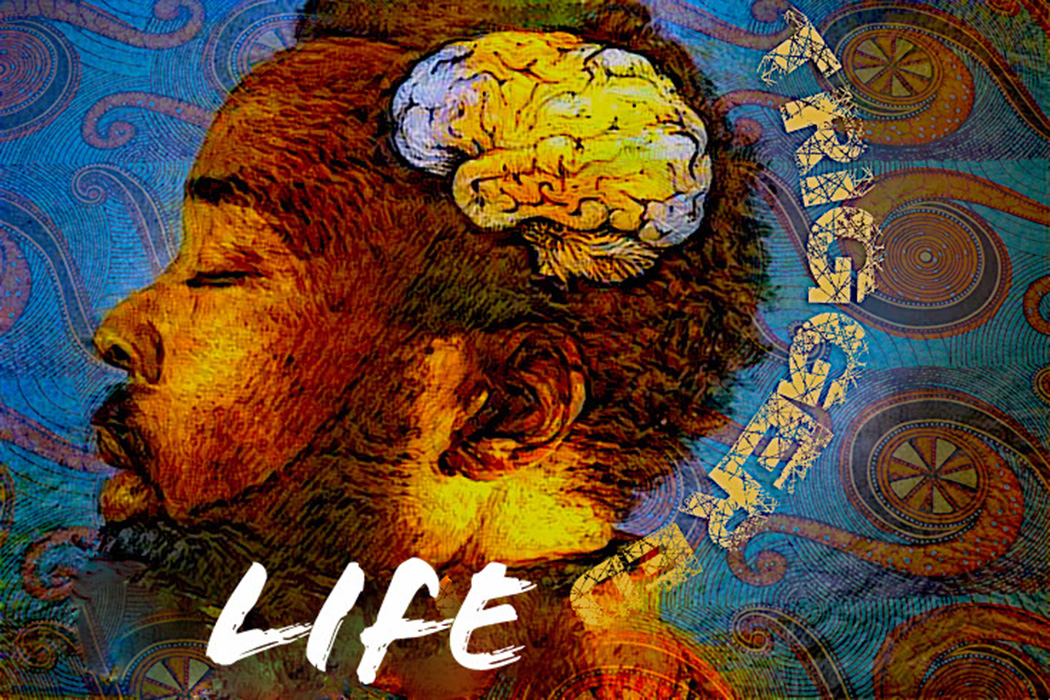
A promotional graphic for the film Triggered Life.
Faculty in the Boston College School of Social Work have received funding from the University to create an educational program in partnership with The Triggered Project, a nonprofit organization that uses art to promote healing.
Organizers at BC say the program will shine a light on the experiences of Black and Brown men who have survived sexual abuse while giving clinicians new tools to help their clients process trauma.
“We’re providing a platform for the untold stories of Black and Brown boys and young men, many of whom are seeking to redefine their manhood in a world that often misinterprets their strengths as aggression and their vulnerabilities as weaknesses,” says Robert O. Motley Jr., an assistant professor who applied for the grant in collaboration with the co-chairs of the school’s Trauma Integration Initiative.
The program, a two-part series funded by a $19,390 grant from BC’s Institute for the Liberal Arts, will include a film screening, a Q&A with the filmmakers, and a follow-up workshop with a licensed clinical social worker.
It will kick off on October 27 at the Robsham Theater Arts Center with a University-wide screening of Triggered Life, a film that follows two men, Keith and Ishmael, as they relive stories from their abusive childhoods and embark on a journey to define their own identity.
Both characters are played by Keith Mascoll, an actor, mental health advocate, and founder of The Triggered Project, who describes the film as a tool to change how social workers and psychologists learn about trauma.
“Talking about my story in general is promoting healing in the Black and Brown community, especially with Black and Brown men,” says Mascoll, whose portrayal of Keith in the film is based on his own experiences as a survivor of sexual abuse. “It’s a conversation that our community does not want to have.”
Motley agrees with Mascoll’s assessment of the film, which won two awards at the Las Vegas Black Film Festival in April 2022. He draws parallels between the project and his Racism-based Violence Injury and Prevention Lab, which examines the interplay between racism, violence, and trauma among 18- to 29-year-olds from marginalized ethnic groups in the U.S.
“ This film provides a platform for Black men to say, ‘Hey, it’s OK to talk about the traumatic things that you have gone through in your childhood.’ Talking about your experiences is a source of healing so that you can go on to be healthy and live a thriving and productive life. ”
“This film provides a platform for Black men to say, ‘Hey, it’s OK to talk about the traumatic things that you have gone through in your childhood,’” he says. “Talking about your experiences is a source of healing so that you can go on to be healthy and live a thriving and productive life.”
Roxann Mascoll, a licensed clinical social worker who serves as a staff psychotherapist at Harvard University and the Brandeis University Counseling Center, will host a follow-up workshop for nursing and social work students at BC on November 10 in the Murray Function Room.
She says the workshop will focus on how clinicians can tailor interventions to meet the needs of their Black and Brown clients, with a particular emphasis on using multiple modalities at once to provide customized treatment.
“All social workers who deal with human beings need to understand and be prepared for these types of journeys that we don’t hear about,” says Roxann Mascoll, who also co-hosts a podcast with her husband Keith. “And the reason why men don’t tell anyone is because we don’t validate their stories. We don’t believe them. We don’t know how to care for them. And so no wonder we don’t know. But we’re out to change that. We need everyone to be ready for all the Black and Brown men that are going to start telling their stories.”
Kathleen Flinton, an assistant professor of practice, says the film screening and follow-up workshop are natural extensions of BCSSW’s Trauma Integration Initiative, which incorporates teaching, fieldwork, and research into a holistic program that prepares students to help clients cope with trauma while guarding themselves against its effects. Keith and Roxann Mascoll’s strategy for shattering the silence of Black and Brown men who have been sexually abused, she says, aligns with the school’s approach to training social workers to provide trauma-informed care in clinical settings.
“Their work brings to life what we talk about theoretically and what students are working to apply in their clinical placements,” says Flinton, who co-chairs the initiative. “We’re always looking to have students make the link between an individual’s experience and their sociopolitical identity and location and structures and institutions around them.”
Licensed social workers who attend both events are eligible to receive three-and-a-half continuing education units, including two for the first event and one-and-a-half for the second event. A third event, exclusively for students in the film studies program, will take place in spring 2024.




